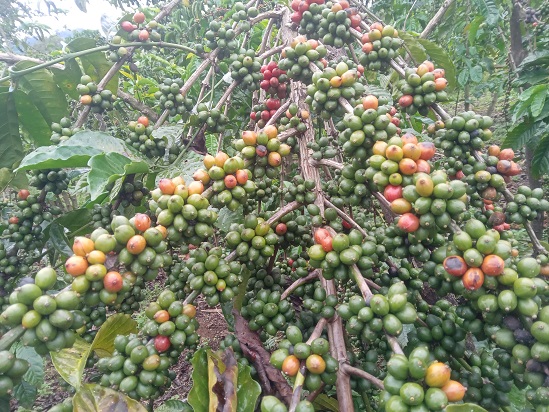The deal involves exporting up to 90,000 tons of Ugandan coffee to the Maghreb countries, which include Algeria, Tunisia, and Morocco.
Coffee farmers in the greater Masaka sub-region have been tipped on a coffee export deal worth USD 300 million (about Shs1.1 trillion) to the Maghreb region in North Africa.
John Chrysostom Alintuma Nsambu, the Ugandan Ambassador to Algeria, revealed that the embassy has established a bilateral trade agreement that targets Uganda’s coffee produce.
He says the trade agreement involves exporting up to 90,000 tons of Ugandan coffee to the Maghreb countries, which include Algeria, Tunisia, and Morocco.
Nsambu says that he has discussed with the exporters giving priority to the Masaka subregion, one of the leading producers of coffee.
He indicates that, together with MAAIF’s coffee department, they have started engaging with organized farmers’ cooperatives in the districts of greater Masaka to build the required supply capacity to satisfy the newfound demand.
Nsambu explains that they are now considering meeting all districts’ Production Officers asking them to mobilize the farmers in their respective areas of jurisdiction to join cooperatives, as one of the strategic ways to ensure the quality and quantity of the produce.
He indicates that besides directly benefiting the local farmers, the contract will substantially increase the country’s foreign exchange earnings from coffee.
Francis Ddungu, the general secretary of Kasasa Coffee Cooperative Society, one of the identified coffee suppliers, says the contract presents them with an opportunity to market their coffee right from its point of origin, saying that this will encourage more production.
He is optimistic that the opportunity will encourage positive competition among cooperatives, which will eventually enhance quality and productivity hence earning the country more foreign exchange.
-URN






How do I join this